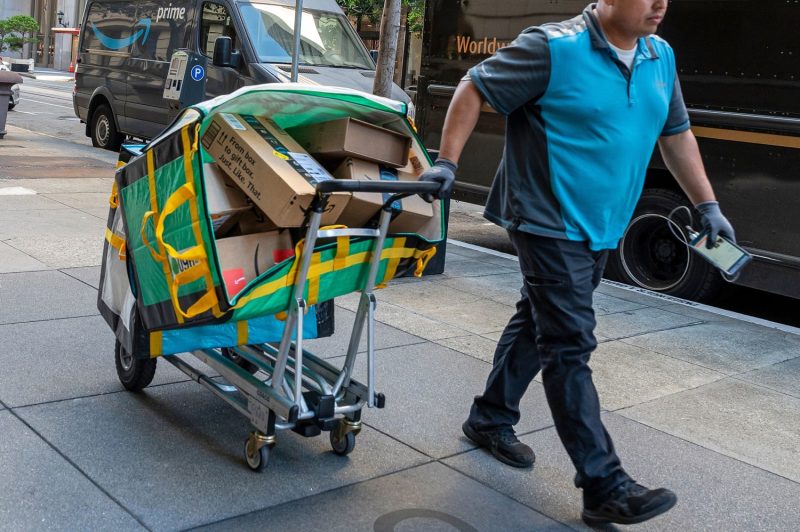In recent news, American multinational technology company, Amazon.com, Inc. is facing a lawsuit filed by D.C. Attorney General Karl Racine for an alleged discriminatory practice of excluding certain neighborhoods from its Prime delivery service. The lawsuit was filed in the Superior Court of the District of Columbia.
The prime concern revolves around the company’s data-driven delivery service, Amazon Prime, which is accused of not extending its services to several areas predominantly occupied by racial minorities. The accusation states that Amazon Prime has failed to serve a handful of Washington D.C neighborhoods with large minority populations compared to the general population.
The allegation was put forth following a detailed analysis conducted by Bloomberg, demonstrating how Amazon Prime’s same-day delivery service was unavailable in several zip codes where the majority of the residents were predominantly of racial minorities. This finding by Bloomberg triggered outrage towards Amazon, prompting the judicial action against the corporation.
Attorney General Karl Racine, stepping up to fight for equal rights of the citizens, claims the service imparity is against D.C.’s Human Rights Act, which notably forbids bias based on factors such as race, color, and religion. Consequently, the non-inclusion of these neighborhoods in Amazon Prime’s delivery map is being perceived as discriminatory.
The lawsuit aims to ensure that Amazon reinstates its services to all the underserved neighborhoods, especially those with significant racial minority populations. The objective is to have a uniform, non-prejudiced modus operandi for all Amazon services.
Amazon itself, however, denies these allegations, stating it has a policy committed to non-discrimination, and serves customers from all over without any discernible bias. The company also points to its services extending to diverse demographics across more than 10,000 cities and towns.
Subsequent to the lawsuit, Amazon announced expanding their Prime delivery areas to seven new regions. This expansion smacked of a bit of surprise, considering it happened just a week after the lawsuit was lodged, thereby raising questions about the timing of the expansion and if it was a reactionary act to the lawsuit.
Despite the added areas, it was significantly noted that none of the additional zip codes included in the new expansion were predominantly populated by minorities. This fact further fuels the ongoing controversy about Amazon’s Prime delivery service policies and practices.
In essence, this lawsuit serves as a sharp reminder for every organization to scrutinize its policies and aid in fostering a more diverse and non-biased consumer-service environment. It has brought the entire business community’s attention to the crucial need for maintaining an unbiased modus operandi and putting an end to any form of discrimination, intentional or otherwise.
As proceedings progress, it will be of keen interest to see how the lawsuit against Amazon helps to move the needle forward in ensuring businesses don’t exploit data-driven models to perpetuate discrimination. The impact of this case is likely to bear considerable importance, considering it might exemplify the legal consequences of violating anti-discrimination laws and ethics in digital world. Should the court find Amazon guilty of the charges, it may well lead to many other businesses being held accountable for their delivery and service policies.
